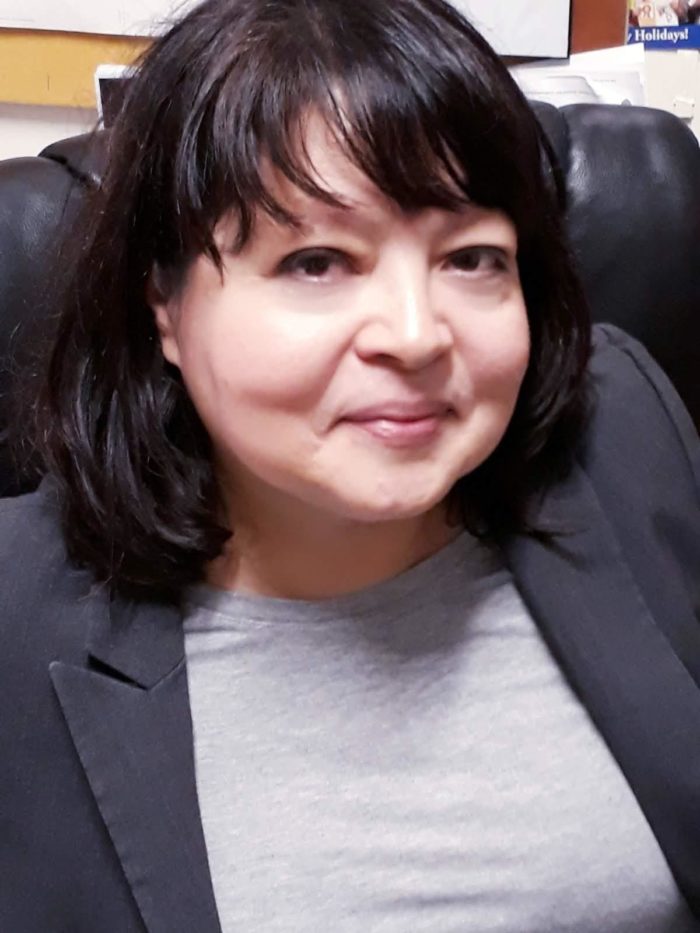By Fariha Ahmed
(The MCSM Rampage recently interviewed Ms. Valle to get some idea of what kinds of skills and dedication are needed to provide academic guidance to students at the high school level. )
* * *
Q: What inspired you to become a guidance counselor . . . and why especially for high schoolers?
A: “My inspiration to become a counselor came from working with students with special needs at the high school level. In college I studied psychology and sociology but I had never thought of working with children. However a lot of jobs available to me at that time where jobs working with children. I got a job in a non-pedagogical position in the school which put me in daily contact with parents and students.
“My job then allowed me to talk to students and assist them. This led students to ask me questions such as, ‘Miss, why you don’t become a guidance counselor?’ They would also tell me ‘You should become a guidance counselor.’ I truly enjoyed my job then, and the time I was spending talking with students. That started me thinking about it and led me to enroll in a graduate counseling program.
“And here I am now, working as a school counselor. As to ‘why high school students,’ . . . I was already familiar with high school students, and I felt comfortable working with adolescents.”
Q: What would you say is the most rewarding and challenging part of being a guidance counselor?
A: “The most rewarding thing for me is when I hear from students that I made a difference in their success with their academics or personal issues. Most challenging, is dealing with a sad situation one minute, then having to quickly switch gears and help another student immediately after.”
Q: What is something all high school students get very stressed about?
A: “Not getting the grades they want is definitely at the top of the stress list, as well as not having enough time to do their homework or manage all of their after-school activities. They also get stressed about their relationships with their peers, friends and family.”
Q: What is something everyone should know about guidance counselors?
A: “In terms of the profession, the one thing that counselors have been working on is moving away from the label of ‘Guidance Counselors’ to that of ‘School Counselors.’ Being called a ‘school counselor’ seems more appropriate to the setting, and to the job that we do.”
Q: What advice would you give to future guidance counselors?
A: “If you are going to pursue a job or career in school counseling, make sure that you are passionate about it. This can be a very stressful job. So you have to love the nature of the job.
“Also, if you are still a student, learn as much as you can, and ask your professors every question that you can. Once in the profession, remind yourself that you cannot do everything, and ask for help and support when needed. Asking for help and support is wise. We don’t always know everything about everything, but we can always try to get the answers.”
Q: What was your first job?
A: “My first job in a helping profession was an internship while in college. I worked as an assistant to the benefits division of the Human Resources Department.
“I really loved helping the clients get their benefit issues resolved. They were so appreciative and happy. That made me feel good about what I was doing.”
Q: Do you have a memory of a guidance counselor who impacted your life?
A: “I remember the person who influenced my decision to go to college I ended up attending. She was the college advisor. However, even though it was a great school, it was not the right fit for me. When choosing colleges, you have to make sure it is the right fit for you and that you identify with the other students there.
Q: If you could have a superpower, which one would it be and why?
A: “I guess the greatest super power that I could have is the gift to read minds—so I could know what students are thinking, and be able to show them how to best help themselves when they are unwilling to share. However that would be intrusive!
“Ideally, it would be best to have students trust me enough to share their stories. I just want to let everyone know that we all go through difficult times in our lives, but we should always strive to get through them. Without struggle, we cannot grow or learn to appreciate the joys of life. Part of growing up and becoming our ‘best self’ is learning how to cope with the struggles that life throws at us.
“Life may not always be easy, but don’t give up. Who knows what great things life has in store for you?”
